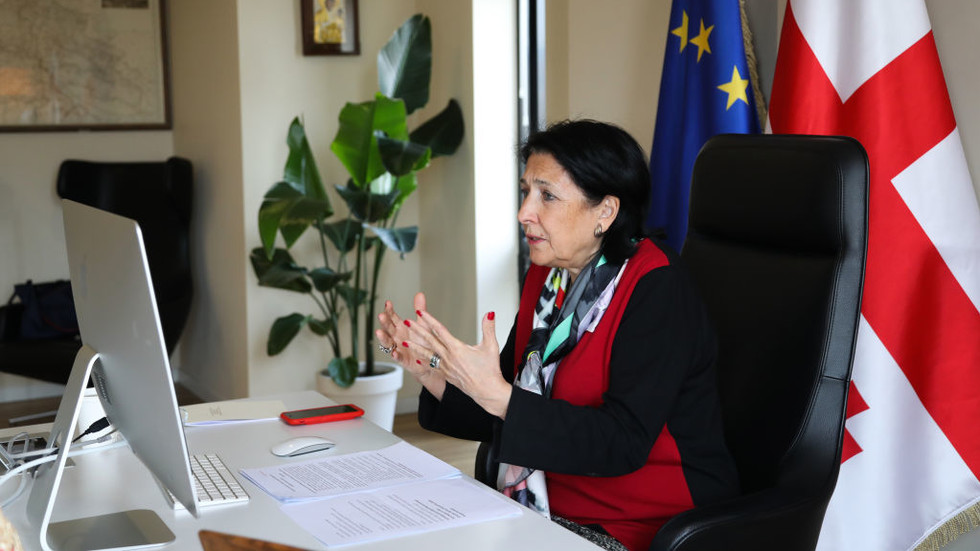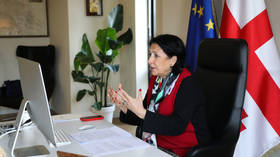
The proposed legislation was slammed by the EU and sparked protests and clashes in Tbilisi

Georgia President Salome Zourabichvili © Daro Sulakauri / Getty Images
Georgian President Salome Zourabichvili has vetoed the divisive “foreign agents” bill, arguing that, if signed into law, it would undermine the country’s aspiration to join the EU.
The Transparency of Foreign Influence Act, which sparked weeks of mass street protests and clashes with police in the capital Tbilisi, was passed by Georgia’s parliament on Tuesday. The legislation would require NGOs, media outlets, and individuals with more than 20% of foreign funding to register as entities “promoting the interests of a foreign power” and disclose their donors. Failure to comply would be punishable by a fine of up to $9,500.
The critics have labeled the bill “a Russian law,” comparing it to the legislation that was passed in 2012 in Russia and has since been significantly expanded. They argue that, if adopted into law, the bill would pave a way to stigmatization and help to crack down on opposition.

Read more
In a video address posted on X (formerly Twitter) on Saturday, Zourabichvili said that the bill contradicts the Georgian constitution and “all European standards,” serving as “an obstacle to our European path.”
“This veto is legally sound and will be delivered to the parliament today,” she continued, arguing that “this law is not subject to any changes or improvements, making it an easy veto.”
The presidential veto is largely seen as symbolic, given that the Parliament is controlled by the ruling Georgian Dream party, which is expected to overrule it.
The bill, which was widely criticized by US and EU officials, was first announced in March 2023, but the government was forced to back down after large-scale protests erupted in the capital.

Read more
The riots occurred again last month when the government said it would proceed with the legislation despite the pressure from the opposition. The White House has threatened Georgian officials with sanctions for “undermining the democracy,” while the EU said that Tbilisi could lose its candidacy status that was granted in December. Brussels is also reportedly considering a reversal of the visa liberalization for Georgians.
“The adoption of this law negatively impacts Georgia’s progress on the EU path. The choice on the way forward is in Georgia’s hands,” EU’s top diplomat Josep Borrell said this week.
Georgian Prime Minister Irakli Kobakhidze has previously defended the bill, arguing that the law is needed to ensure more transparency and does not violate EU standards. He invited protesters on Friday to delegate representatives who would join a public discussion with him on the matter.




